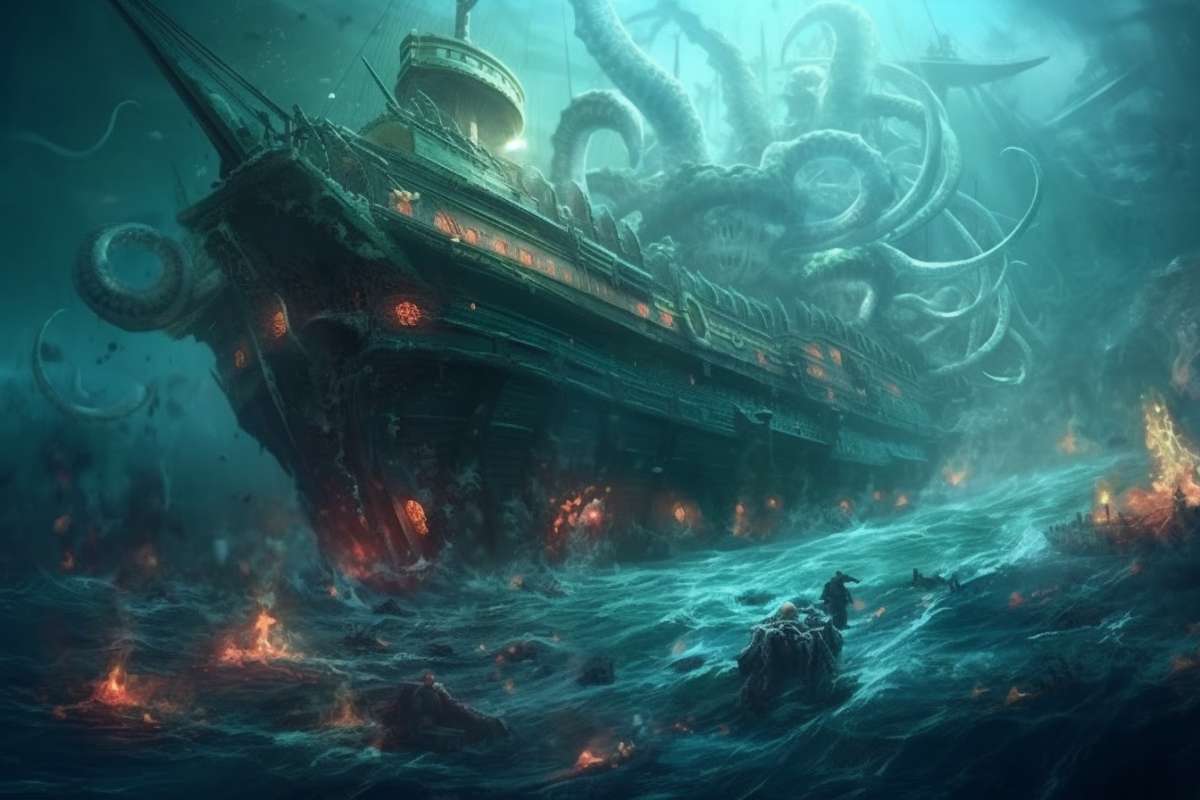Table of Contents
- Introduction
- The Role of Mythology in Modern Fantasy
- Common Mythological Elements in Modern Fantasy
- Mythology as a Genre Trope in Modern Fantasy
- Examples of Mythology in Modern Fantasy
- Creating Your Own Mythological Story
- Conclusion
Introduction
Mythology has always been an essential part of storytelling, with its larger-than-life characters and epic tales capturing the imagination of audiences for centuries. From Greek gods to Norse legends, these ancient stories have influenced countless modern authors and continue to be a source of inspiration for today's storytellers. In this article, we will explore the role of mythology in modern fantasy and examine how these ancient stories have been woven into today's tales.
The Role of Mythology in Modern Fantasy
Mythology has long been a part of the fantasy genre, with authors drawing inspiration from ancient stories to create their worlds and characters. From the epic battles of the gods to the hero's journey, these ancient tales provide a wealth of material for modern authors to draw upon.
At its core, mythology is about exploring the human experience, with characters often representing archetypes that we can all relate to. These characters are flawed and imperfect, facing challenges and obstacles that test their strength and resolve. Through their struggles, they teach us important lessons about life and the world around us, inspiring us to be our best selves.
By incorporating mythology into modern fantasy, authors can tap into these archetypes and use them to create complex and compelling characters that resonate with readers. Whether it's the noble hero on a quest to save the world or the vengeful god seeking revenge, these characters capture our imagination and draw us into their stories.
Also read: Magic Systems in Fantasy: The Art of Defining the Impossible
Common Mythological Elements in Modern Fantasy
While there are countless mythological elements that authors can draw upon, some are more common than others. These elements include:
- Gods and Goddesses: The gods and goddesses of mythology are often central to modern fantasy, with authors using them to create powerful and enigmatic characters.
- Heroes and Villains: Mythology is full of heroes and villains, from the heroic demigods of Greek legend to the malevolent giants of Norse mythology.
- Monsters and Creatures: From the minotaur of Greek legend to the dragons of medieval folklore, monsters and creatures are a staple of mythology and fantasy alike.
- Prophecies and Destiny: Prophecies and destiny are common themes in mythology, with characters often struggling to fulfill their destinies or prevent a prophecy from coming true.
- Underworlds and Afterlife: Mythology often explores the afterlife and the underworld, with authors using these settings to create eerie and atmospheric scenes.
Mythology as a Genre Trope in Modern Fantasy
Mythology has become a common trope in modern fantasy, with authors using ancient stories and characters as a foundation for their worlds and stories. This has led to the creation of sub-genres such as urban fantasy, which blends modern settings with mythological elements, and mythic fantasy, which focuses on retelling classic myths and legends in new and interesting ways.
By incorporating mythology into their stories, authors can tap into the rich history and symbolism of these ancient tales, creating stories that are both familiar and new. This allows them to explore complex themes and ideas while still keeping readers engaged and entertained.
Examples of Mythology in Modern Fantasy
There are countless examples of mythology in modern fantasy, from the gods and goddesses of Rick Riordan's Percy Jackson series to the dragons and monsters of George R.R. Martin's A Song of Ice and Fire. Some other notable examples include:
- American Gods by Neil Gaiman: This novel blends mythology from various cultures with modern-day America, creating a unique and compelling world.
- The Mortal Instruments series by Cassandra Clare: This urban fantasy series features a cast of characters that includes werewolves, vampires, and other supernatural beings drawn from myth and legend.
- The Lord of the Rings by J.R.R. Tolkien: While not directly based on any one mythological tradition, Tolkien's work draws heavily on Norse and Anglo-Saxon mythology, creating a rich and detailed world that feels both familiar and new.
Creating Your Own Mythological Story
If you're interested in incorporating mythology into your own writing, there are a few things to keep in mind. First and foremost, it's important to do your research and familiarize yourself with the mythological tradition you want to draw from. This will help you create a world and characters that feel authentic and true to the original stories.
Once you have a solid understanding of the mythology you want to incorporate, it's important to think about how you can use it to tell your own unique story. This might involve blending multiple mythological traditions, creating your own pantheon of gods and goddesses, or using mythological elements as a backdrop for a larger story.
Finally, it's important to remember that while mythology can be a powerful tool for storytelling, it should never overshadow the story itself. At its core, a good story is about characters and their struggles, and it's important to use mythology in service of that larger narrative.
Conclusion
Mythology has been a part of storytelling for centuries, and it continues to be a powerful tool for modern authors. Whether you're drawing inspiration from ancient stories or creating your own mythological tradition, incorporating mythology into your writing can help you create rich and engaging worlds that resonate with readers. By understanding the role of mythology in modern fantasy and exploring the common elements and tropes associated with this genre, you can create stories that are both familiar and new, drawing readers into your world and leaving them wanting more.
